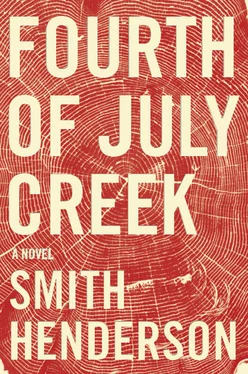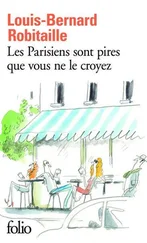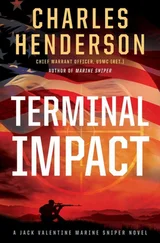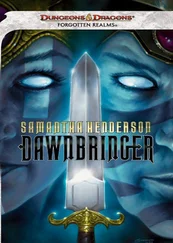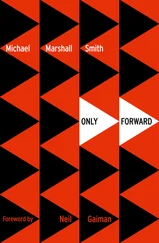“Left. Go left.”
The bald man kept checking the mirror as they drove. After a time, he settled down and picked through the things on Pete’s floor — clipboard, an accordion folder of case files, a plastic sack of baby bottles and rubber nipples. His lips flattened into a warmer expression. He said his name was Charlie.
“So you really are a social worker.”
“Yes.”
“Sorry it had to get a little heavy back there.”
“It’s okay. I’m accustomed to it.”
The dope farmers’ camping trailer was an hour and forty minutes away, up a remote logging road that hugged the shore of a nameless tiny lake impinged on and all around littered by a haphazard selection of boulders the size of small cars. Pete parked and they hauled the plants into the trailer and tossed them into the narrow hall, and when it was done, Charlie went down to the lake and came back with four bottles of cold beer. Pete made to go, but Charlie said for him to stay a while. That they’d all feel more at ease. They sat around a fire pit that was itself nearly encircled by boulders and drank the beers. Across the water a moose walked in muck and drooled into the lake heedless of them making a fire. Pete was put to shucking corn. Charlie took a few trout from the lake that they gutted, wrapped in corn husks, and cooked on the coals. They ate them with the corn and when dark fell, passed around a bottle of bourbon and a small ivory pipe carved into the shape of a naked woman whose mouth was the carb and whose blackened crotch Charlie stuffed with a plug of pungent purple weed.
“This your stuff?” Pete asked.
Charlie laughed. “The shit I grow is shit.”
They leaned against the boulders sated as Cheshire cats. Pete became altogether absorbed by the gill-like pulsing of the coals and the stoned epiphany that fish and fire shared a profound correspondence. He chuckled morosely at how high he was, that these guys could still decide they didn’t trust him. Now too stoned to make a break for it. The moose could still be heard across the water, the occasional suction of a hoof in the shallow mire. He thought he was just being paranoid. Except he wasn’t. Not exactly. He couldn’t tell.
Charlie leaned back to reach into the front pocket of his jeans and flipped a coin that flashed in the firelight and plopped in the dark somewhere between Pete’s legs. Said for Pete to look at the quarter.
“I already know,” Pete said.
“Where’d you get yours?”
“All over.”
Charlie sucked his teeth. “I’ve heard of them as far south as Polson and west in Bonner’s Ferry,” Charlie said. “A couple in pay phones on the Hi-Line.”
“There’s a pawnbroker collects them in Whitefish,” Pete said.
Charlie nodded and gazed into the fire.
“So,” Pete said. “How do you know Jeremiah Pearl?”
THEY MEET PEARL one spring at another grow location, a place not to be disclosed. It has rained for several days and they have been waiting for good weather to plant the seedlings. They’re playing cards in their tent when they hear a man call out. Pearl, in a hooded poncho, a rifle covered with clear plastic slung over his shoulder. He wears a large beard and the rain is coming down so hard you cannot make out his eyes or his expression.
He asks what is their business up here.
Charlie says they are camping, jokes how it’s just their luck to be out in such weather.
Their saplings are in apple crates and covered by a makeshift tarpaulin of plastic bags. Pearl inspects them, ignoring Charlie’s protests. He studies their seedlings and nods, as though he now understands everything. They think for a moment they are caught, that he is law enforcement or some grizzled official with the Bureau of Land Management. But the rifle. Maybe he’s a crazy misfit, a poacher.
Pearl shouts through the rain that they have a crop in another location.
Charlie says it’s none of Pearl’s business.
Pearl describes the location exactly.
The tent is small for three men playing cards and now more so with Pearl, who has simply entered it uninvited. He tracks in a great deal of mud and badly reeks. Dark water runs off his filthy pants, and getting a close look at him, they can see now a face of staggering intensity. Eyes a mineral shade of blue, an unnerving cold potential in them.
Pearl introduces himself. Asks if they would like to parley. There’s some discussion about what that in fact means. Pearl has a strange way of talking. Grand, with out-of-date words and diction. He explains that he does not believe the land he walks is his own, but also that no one knows all its features as well as he. He allows there are old-timers who might know more. He’s met such men in their cabins and cruder mountain redoubts but knows several of them to have died or moved on.
He insists that he has not one issue with cannabis and discusses with them the history of the plant and its role in the early Republic, the rope, cloth, and paper that were made of it and the wide variety of its applications on land and sea. He outlines what interests had lobbied for its criminalization. He says that growing the plant is a demonstration of man’s inherent freedom.
Charlie offers to smoke with him. Pearl declines. Charlie asks Pearl does he mind if he and his partners partake, and Pearl says go ahead.
Pearl talks as they smoke, almost as if he has held forth with them many times previous and has come back to at last finish the story. He speaks unbidden about his wife’s visions, dreams of the mountains, explosions and bloodshed, and how they prayed and realized that God was telling them to make ready for the End Times. How they sold off everything. The house, the cars, the boat, the motorcycles. Pearl travels out here, finds a piece of land. It has the exact features that his wife has dreamed, a south-facing hillside, a bench of rock on which they will build a house. He buys the property, goes home to fetch his family.
They know the dollar will be worthless and so they convert almost everything they own into bullet, gun, or seed. And gold, Pearl adds. Krugerrands and Maple Leafs and smaller denominations.
There are signs of betrayal and of what will be completed. They are followed by a black sedan. The president of Italy is murdered by the Red Brigade. Their car is sabotaged in South Dakota. The heat wave, the hot blacktop as they wait for the tow truck, the hot blacktop as they wait for the mechanic.
A hundred and thirty dollars for an alternator. The mechanic says the tires look pretty wore out. Jeremiah checks for his wallet in his back pocket as if the mechanic were reaching for it, which in a way he is. They are about out of American scrip. They camp a stone’s throw from the car in a dry swale next to a cornfield. No fire. They sleep on the ground in their sleeping bags and wake up dewy and stiff. A bag of green apples for breakfast.
They drive on. It’s too hot to even muse. The children doze through a short cataract of rain, a rough draft of a storm. When they wake, they bicker. The mother has migraines along with her visions, and the children’s voices are like trumpet blasts, the wind a plague of static in her ears. Her mind becomes a slide of falling boulders, and all at once she’s gripping his arm, telling him to pull over. She runs barefoot over the sharp macadam and up a berm to retch and roll onto her back in a brief respite. She casts up her eyes and sees a baleful gray skein of movement that at first she takes for geese or ducks in flight but which turn in her painful gaze into a field of hammers. A sky full of hammers. The pounding behind her eyes begins anew.
Jeremiah helps her back to the car.
Gassing up in Sioux Falls, she pumps down the window and calls for him, and thrusts out her hand, fingers bloody to the palm. He is alarmed, of course, wondering what fresh evil is this.
Читать дальше
